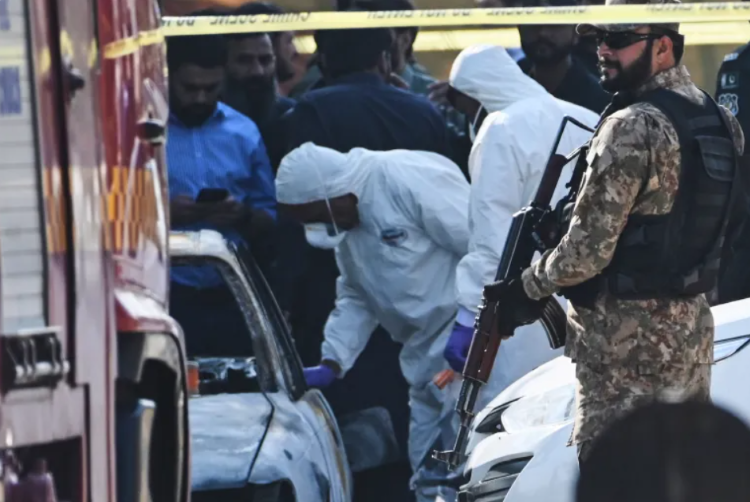(Al Jazeera Media Network) Less than two hours after a suicide blast at the entrance of the district court in Pakistan’s capital Islamabad on Tuesday, Khawaja Asif, the country’s defence minister, called the attack a “wake-up call” and “a war for all of Pakistan”.
“The rulers of Kabul can stop terrorism in Pakistan, but bringing this war all the way to Islamabad is a message from Kabul, to which, praise be to God, Pakistan has the full strength to respond,” he wrote on his X account.
After a week of deadly fighting on their border in October, Pakistan and Afghanistan had signed a ceasefire agreement in Doha, with Asif and his Afghan counterpart Mullah Mohammad Yaqoob inking the pact.
But that was followed by two unsuccessful rounds of talks in Istanbul aimed at cementing the ceasefire and turning it into a longer-term pathway for peace between the neighbours.
Now, even as a Turkish delegation is due to arrive in Pakistan later this week to try to salvage those talks between Islamabad and Kabul, Tuesday’s attack threatens to kill the already-fragile prospects of any breakthrough, even though the Taliban have condemned the Islamabad blast.
“I should make this clear about Afghanistan,” Asif said, speaking to a local news channel on Tuesday. “All their wars have been based on insurgency. To counter that, we must rely on conventional war, and Pakistan has a great army.”
Pakistan long enjoyed close ties with the Afghan Taliban, and many Pakistanis welcomed the group’s return to power in August 2021.
But relations have soured, largely over Islamabad’s accusations that Kabul has provided sanctuary to the Tehreek-e-Taliban Pakistan (TTP). The Afghan Taliban reject Pakistan’s accusations.
An armed group that emerged in 2007, the TTP has waged a sustained campaign against Pakistan and is often described as the ideological twin of the Afghan Taliban.
Besides the TTP, Pakistan accuses Afghanistan of sheltering the Balochistan Liberation Army (BLA) and the local ISIL/ISIS affiliate, known as the ISKP – even though the ISKP is a sworn enemy of the Afghan Taliban.
The last two years have seen a sharp rise in violence inside Pakistan. Most attacks have occurred in the Khyber Pakhtunkhwa and Balochistan provinces, both of which border Afghanistan.
The assaults have disproportionately targeted law enforcement personnel. More than 2,500 people were killed in armed attacks in Pakistan in 2024, one of the country’s deadliest years in nearly a decade, and 2025 appears on track to exceed that toll.
Aside from the suicide blast in Islamabad, a major operation in Wana, the administrative centre of the tribal district South Waziristan, helped avert a potentially catastrophic attack earlier this week. A two-day military operation rescued more than 500 students, teachers and staff, concluding on Tuesday night.
https://www.aljazeera.com/news/2025/11/12/can-pakistan-afghanistan-peace-talks-survive-islamabad-delhi-blasts


